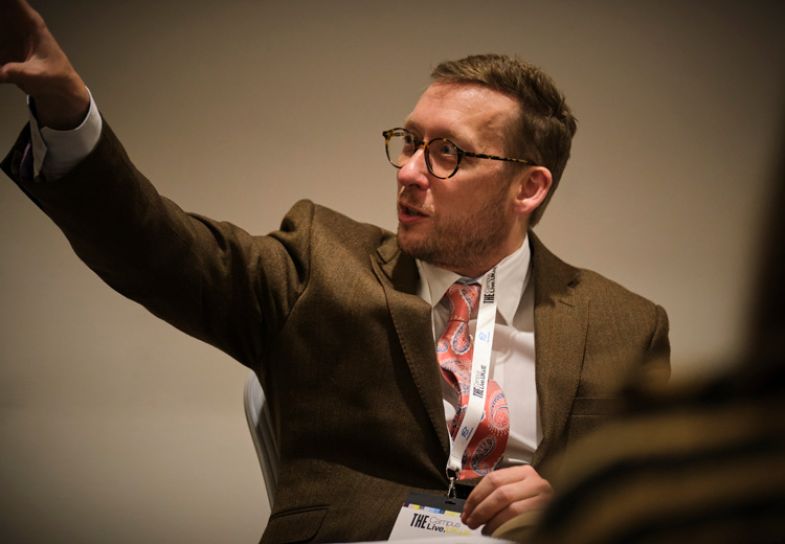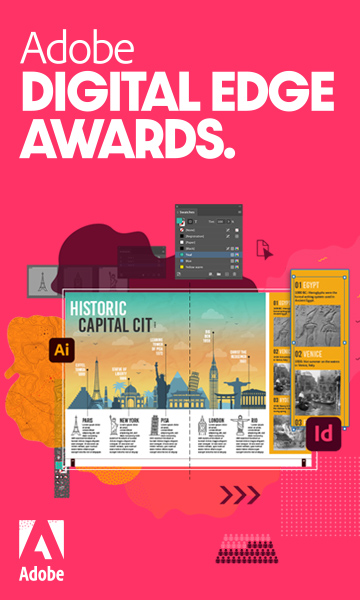
While the pandemic increased the speed of digital change at many institutions, there are still challenges in getting staff and students on board with new tools and approaches
For any university implementing a digital transformation programme prior to 2020, the pandemic moved things up a gear. Where there had once been reticence about blended learning, entire faculties then moved to remote delivery in a matter of days when Covid-19 closed campuses – and many hope this openness to change will endure.
At THE Campus Live UK&IE, a round table session hosted in partnership with Adobe brought together experts from academia and industry to discuss how to integrate new technologies at scale to enhance learning and assessment.
The panel agreed that digital projects still required delicate change management, even when happening at pace. “The culture of your institution and where you start matters,” said Stephen Shute, pro-vice-chancellor of the University of Sussex. “It’s not a problem to convince students that tech can help pedagogy. The key is to bring staff with you.”
Andrew Turner, associate pro-vice-chancellor of teaching and learning at Coventry University, described how working with a range of edtech start-ups over the course of the pandemic had helped his institution enhance digital acceptance as well as student engagement. “We define the ecosystem and what we will support, rather than bringing in hundreds of tools that are only used by one evangelist,” Turner explained.
However, at institutions that are not such early adopters of new solutions, this could be more of a challenge. “Your model of change is important if you want to get it right,” said Stephanie Marshall, vice-principal of education at Queen Mary University of London. “We started with pockets of innovation, working with those who are prepared to have a go and think of the long game.”
At the University of West London, offering a simple pedagogical template has helped academics embrace change quickly. “We used a quite simple, reflective model of learning and embedded that into the structure of our VLE [virtual learning environment],” said Joelle Fanghanel, associate pro-vice-chancellor of academic development and scholarship at the university. “This meant we could do what needed to be done in terms of training the staff on learning design.”
Not knowing how students were accessing learning was also a key driver for keeping things simple, Fanghanel added. That said, students often create their own informal communities of learning beyond the framework of a VLE, explained Janet Jones, pro-vice-chancellor of knowledge exchange at the University of Westminster. “Students will always find the lowest common denominator, set up their own classroom environment on WhatsApp. So, it’s about finding an environment where they feel comfortable and manage the balance between the informal and the formal,” Jones said.
Imperial College Business School trained “co-pilots” to support faculty members to manage the transition to blended learning, said Sarah Grant, associate director for Imperial’s edtech lab. “We were experimenting with hybrid tech but wanted to address the panic about how to teach effectively where there’s a classroom full of people on screen and some in person,” Grant said.
Mica Rose, head of student experience at the University of Kent, set up a consultation with students to gauge their preferences, but insisted it wouldn’t be a case of bowing to what they want. “Many still prefer to do everything online but we need to look at where students get the most value,” she said.
Often, students in creative and practical areas such as architecture and engineering are at the sharp end of these changes. Andrew Knight, executive dean of the school of architecture, design and the built environment at Nottingham Trent University, felt that links to industry had helped this transformation. “Placement students have shown me visual walkthroughs, we’ve seen digital degree shows. You hand this over to students and digital literacy goes through the roof,” he said.
Mark Andrews, pedagogical evangelist at Adobe, added that facing learning challenges in real-time would make for more authentic assessment in the future. “It’s about enablement, because that’s how we learn in life,” he said.
The panel:
- Mark Andrews, pedagogical evangelist, Adobe
- Kathy Charles, executive dean of learning and teaching, Nottingham Trent University
- Joelle Fanghanel, associate pro-vice-chancellor academic development and scholarship, University of West London
- Sarah Grant, associate director of the edtech lab, Imperial College Business School
- Janet Jones, pro vice-chancellor of knowledge exchange, University of Westminster
- Andrew Knight, executive dean of the school of architecture, design and built environment, Nottingham Trent University
- Stephanie Marshall, vice principal of education, Queen Mary University of London
- Mica Rose, head of student experience, University of Kent
- Stephen Shute, pro-vice-chancellor, University of Sussex
- Andrew Turner, associate pro-vice-chancellor of teaching and learning, Coventry University
- Ashton Wenborn, special projects deputy editor, Times Higher Education (chair)
Find out more about Adobe’s solutions for higher education.


























